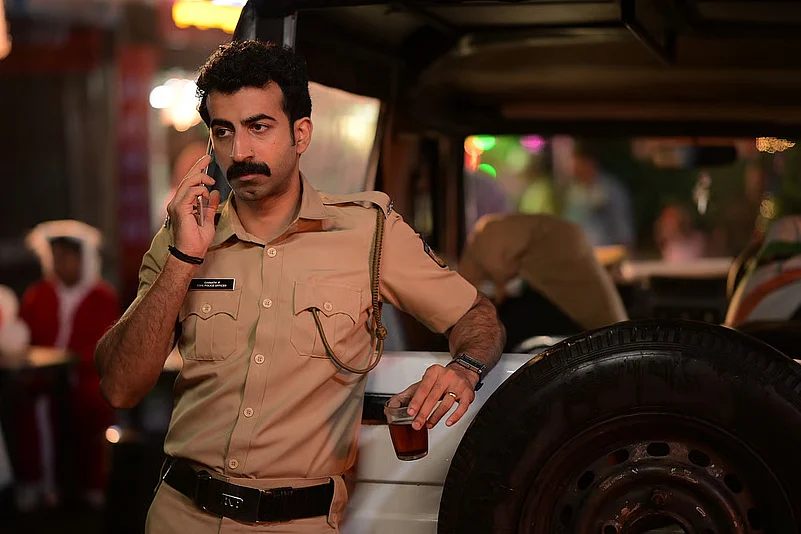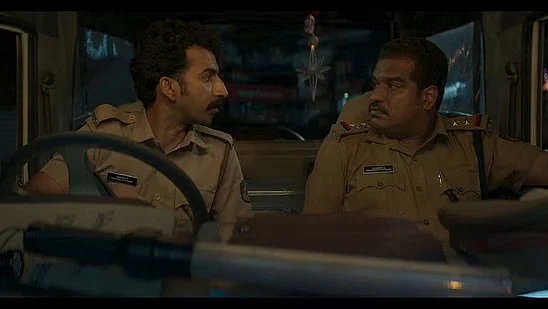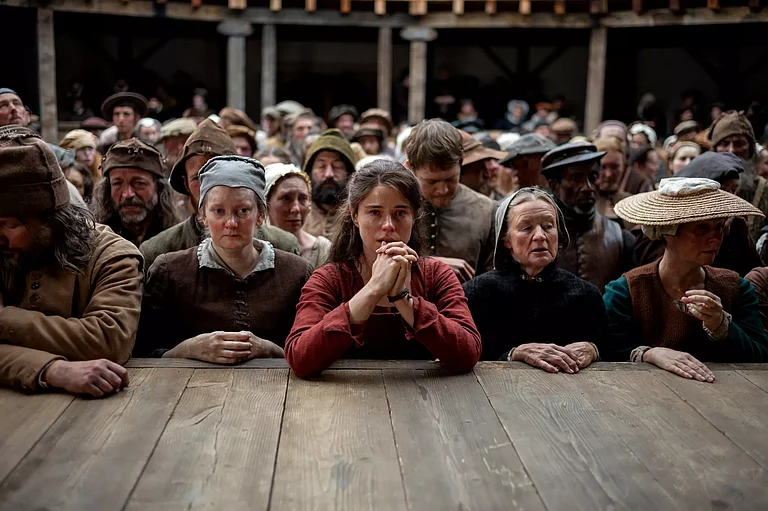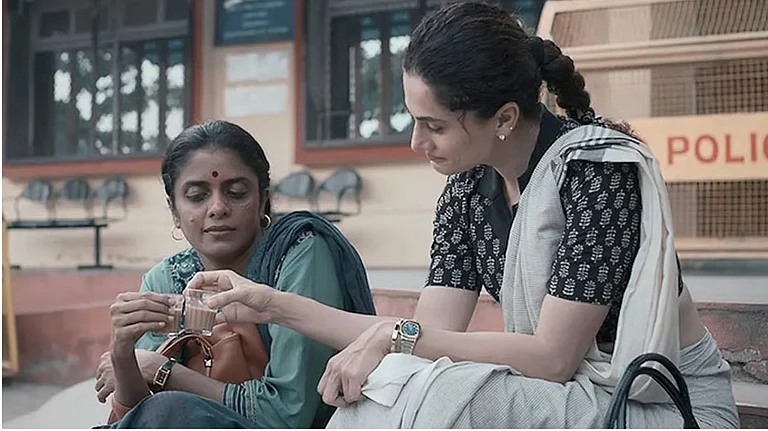An unwavering, studied discipline fuels Ronth. Shahi Kabir’s drama pays special attention to the steadily unfolding tension, which it derives via character-driven realisations. We encounter individuals in flux that are products of a web of oppression and gaslighting. In this tale of two competent police officers, stakes escalate as both eventually, tragically recognise themselves as nothing more than pawns. The system will spit them out unblinkingly the minute they actually mess with the powerful. Senior sub-inspector Yohannan (Dileesh Pothan) is confident in knowing the ins and outs of police work, boundaries set in place. But even he trips.
Spanning a night of patrol duty, Ronth follows Yohannan and rookie officer, Dinnath (Roshan Mathew), as they clash with underpinnings of crime and justice. Dinnath is stressed about his sick child back home, but knows he cannot dodge duty. His naivete and idealism are juxtaposed against the hardened cynicism of Yohannan, who doesn’t always go by the book. In one scene, the young recruit chafes against the senior cop for accepting a bribe. But Yohannan adds the money is for repairing the police jeep. Their salaries don’t cover it all. So, one has to make do with driving the guilty into paying up. Initially, Yohannan strikes as rude and bullying—someone who could do with a lot more sensitivity. He tends to dominate Dinnath, needlessly berating him despite the latter being in the ethically right. The latter has to prove himself equal to the task.

Everything about him repels Dinnath. To witness Yohannan playing fast and loose with the potentially guilty lands as constant attack on the newbie’s unstinting principles. Gradually, however, as the night rolls on, Dinnath’s gaze on his work and the limits of service shift and turn sobering. We are privy to his shedding of innocence. He grows to realise the practical tact in Yohannan’s approaches, which earlier he would have flinched at. Dinnath’s nobility turns increasingly fragile—his beliefs paling to doubt.
Yohannan’s twenty years of service do hold few necessary lessons, also ensuring a personal shielding. In a telling bit, he suggests to Dinnath that the police function to keep up the existing hierarchy. The Idukki-set Ronth works as an excellent showcase of two characters pressed together with discomfort, insecurity and compassion flaring in between. The writing gears us to view them within particular emotional contexts. For every move Dinnath and Yohannan make, there’s a history of pain and guilt. These are people repressing much of their tortured interiors in the line of duty. No matter the endless triggers, they can’t let their vulnerability slip.

Kabir drills into the minutiae of duty, as weariness and mental toll accumulate with only brief breaks. Characters try to sniff danger in the drudgery. Observation is key. Diverting for family emergencies are to be indulged when it’s absolutely unavoidable. Instead, the officers must stay alert even while rushing off wherever they are summoned. Kabir insists on the elongation of time. We hang with characters through frustrations and boredom, as they move through the night. Ronth is hard-nosed and spiny, throwing characters at the deep end. With laser focus, it unpicks how the cops navigate ruse before being caught up themselves. The smaller episodes they try to sort out gather a disturbing, nihilistic final shape.
There’s a methodical cool-headedness with which Kabir unravels what it takes to weather all the emotional stew on patrol. Dinnath is often in knots while tackling a situation. He starts off as gullible and sincere to a fault. Yohannan schools him with a taste for mockery and condescension. Dinnath has to go through the grind and emerge unscathed. But we do see him unnerved. He makes misjudgments. Kabir’s honing of these character studies lends Ronth its acute enquiries into individuals thrust into crisis as well as outside it. He achieves this through considered pacing, a steady eschewal of clearly affixed morality. The terrible slights of Yohannan mask the grief he hides, the daily performance he keeps at work of having a regular marriage. Pothan subtly expands on a man hollowed out by irreconcilable loss. Ronth scans the mental strains the cops endure at great length. There’s a bundle of trauma and anxiety that shoots up as part of the job. Dinnath is deeply hit. He just hasn’t been on the rounds for too long to internalise emotional detachment. Both he and Yohannan have their demons. The latter is aware of his defence mechanisms. Mathew brings the weight of trauma alive in a blistering, embodied performance.
Though Ronth does hint to it, the final act comes off as manufactured—an overt tying back to Nayattu (2021), which Kabir had written. The similar climactic notes diminish the film’s otherwise bracing sincerity. Tragedy peaks, systemic orchestrations come down heavy on the unsuspecting. Ronth shares and emphasises that film’s grim worldview. But the gut punch doesn’t land—a brutal shift of tone more overwrought than seamless.
























